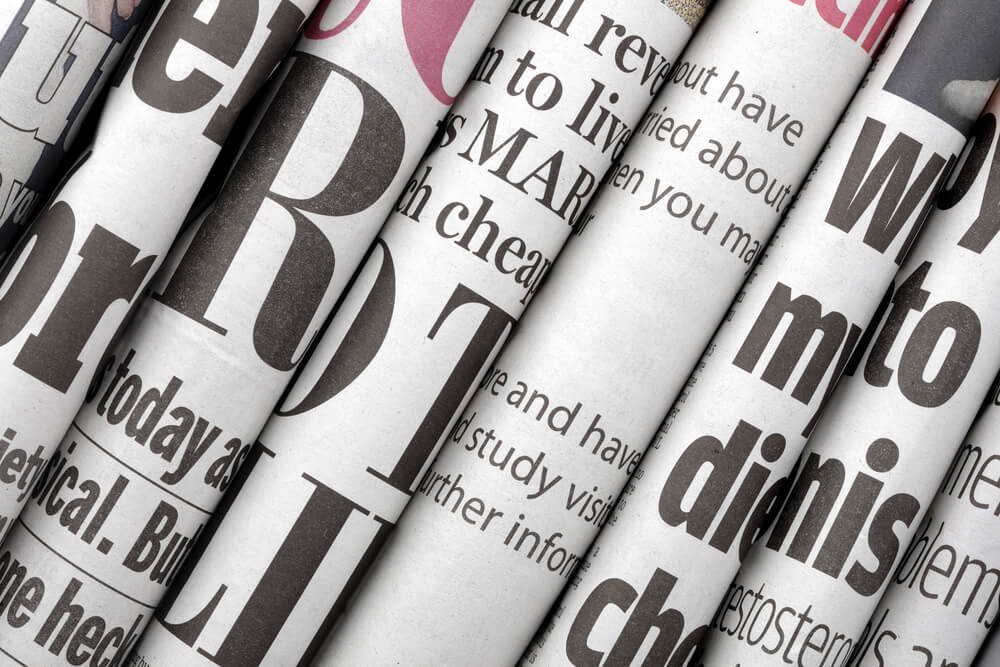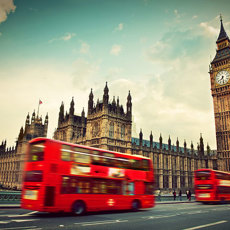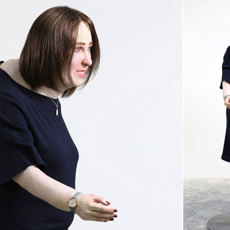A Brief Introduction To ‘Journalese’ — The Weird Language Of News
Kai Communications

Imagine a typical tabloid headline: ‘BOSSES BLAST CHIEFS’. What is going on here? Technically this is a complete English sentence. As in, it consists of a subject, a verb and an object. But its meaning is obscure, and the phrasing is just plain weird.
‘BOSSES BLAST CHIEFS’ is journalese in its purest form. A headline is designed to attract our attention. In the days of yesteryear, when newspapers ruled how we thought about the world, editors and journalists would compete for the most attention. The job of a headline is to get you interested, enough to pick up (and buy) the newspaper, in a few words as possible.
The general limitation of space is what drives journalese — and over the decades it has encouraged the development of an English style unique to the newspapers. One of the first people to identify this “distinct sub-genre” (as he called it) was British novelist and journalist Keith Waterhouse.
In his book ‘On Newspaper Style’, Waterhouse called it ‘tabloidese’ as back then the sub-genre was pretty much the domain of the tabloids. But increasingly, the sub-genre has spread to the high culture publications, including The Daily Telegraph and The Times. Hence the broader term ‘journalese’ has replaced ‘tabloidese’.
How publishing limitations made a new language
Journalese in newspapers is a sub-genre of English constantly under strain by word count and character limitations. There is finite space in a newspaper, and the need to make room for advertisements and other news. This strain can make obsessions of letters.
Take for example the letter ‘m’. The chances are, the ordinary person doesn’t give it so much of a thought. But to a journalist ‘m’ is a nuisance — it is at least one-and-a-half times wider than most letters. On the other hand, the simple letter ‘i’ is perfect.
Choosing the right words and letters matters a great deal when stylising headlines. Short words are very valuable. ‘Bid’ is better than ‘attempt’. Likewise, ‘rise’ is preferable to a similar word like ‘growth’.
But journalese is also about keeping your attention once it has captured it. So it also tends to favour dynamic and exciting words over duller alternatives. For example, why use the word ‘talk’ if ‘rant’ will also do?
Journalese relies heavily on clichés — which are still used partly because they remain effective. The sub-genre is not meant to be hard to comprehend. On the contrary, it is meant to get a point across as quickly as possible, in an engaging manner, to people who are most likely just walking past the newspaper stand, not really paying attention
Journalese as an emotional language
If journalese is meant to be dynamic and exciting, it is also meant to be emotional. One of the great skills a journalist must learn early on is how to see the shock or surprise-value in something that is actually mundane.
For example, royal correspondents managed to make William and Kate’s engagement a shock and a surprise, despite them already having been together eight years. This same ‘surprising’ tone can also be found with war correspondents reporting on shots fired in Afghanistan, and in political circles whenever two cross-bench MPs happen to disagree on something.
The journalist Robert Hutton once joked that journalists even ascribe to a journalese “scale of fear”, with zero referring to “calm”, five being “alarming” and 10 synonymous with “terror”. For example, “terror on the Afghan border”.
Criticisms of journalese
Journalese has plenty of critics from both in and outside of the industry. To many non-journalists, journalese has a big part to play in contributing to the common hatred of professional journalism. But many journalists themselves often voice their misgivings. The most common being:
- Journalese is clichéd. As a style, journalese still borrows imagery that is now decades old — almost certainly because the imagery is still effective. Still, innovation is lacking and readers who buy newspapers deserve better writing.
- It can make the journalist lazy. Lazy journalese can make the journalist lazy in their reporting. A common joke amongst journalists is that every story about politics must end with a question of who should resign. But the world is almost always more interesting and subtle than journalese will allow.
- No one really ‘needs’ journalese. Good stories in plain old English sell themselves. In fact, the presence of journalese could be indicative of a boring news item, as it is essentially an admission that it requires a dynamic and flavourful style to make it appear interesting.
- It can actually make journalism less accessible to the public. Journalism must be clear and unambiguous. But sometimes journalists may be “talking to one another” with journalese, employing metaphors they think their readers understand, when they actually don’t.
Good journalese
But for all its faults, some journalists stand by it — arguing that it came about for a reason. Common positives of journalese include:
- It works to save space. Headlines can only be so many characters and take up so much space. And journalese is mostly great at getting across the jist of a story within a finite word count.
- Journalese is lively and exciting. It helps to make real world events more interesting, as well as just providing information.
- It is already well established. That means, everyone already knows what ‘crisis talks’ are. This familiarity means it is already very effective.
Journalese is also — when done correctly — very memorable. It can leave a powerful mark on the way we talk and think about issues in society. For example, the terms ‘test-tube baby’ and ‘mad cow disease’ have even migrated beyond the tabloids and have entered common usage.
They are a testament to how journalese can be at its very best: original, descriptive, and emotive. Most people won’t even recognise them as the products of journalese at all.
—
Guest Blog - Neil Wright writes for McGowan Transcriptions. www.mcgowantranscriptions.co.uk















































